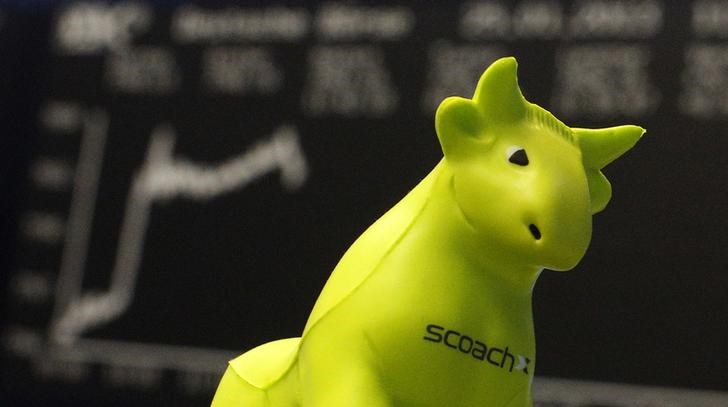By Peter Nurse
Investing.com - European stock markets traded higher Monday, only partially unwinding Friday’s hefty losses, with travel stocks benefiting as investors reassess the potential economic damage the newly discovered omicron Covid variant might cause.
Fears gripped the market last week that the variant could resist vaccinations and crush the economic recovery. However, South African health experts have indicated that the symptoms from the new variant have been mild so far, while drugmaker Moderna (NASDAQ:MRNA) indicated Sunday it could roll out a reformulated vaccine early next year.
At 4:10 AM ET (0910 GMT), the DAX in Germany traded 0.6% higher, the CAC 40 in France also rose 0.9% and the U.K.’s FTSE 100 climbed 0.9%. These indices fell around 4% on Friday.
The omicron variant is likely to spread internationally, posing a "very high" global risk where Covid-19 surges could have "severe consequences" in some areas, the World Health Organisation said on Monday.
New cases have been found in a number of countries, including the U.K., the Netherlands, Denmark and Australia, prompting more travel restrictions as countries try to isolate themselves.
IAG (LON:ICAG) stock rose 2.1%, Lufthansa (DE:LHAG) stock climbed 1.7%, while Tui (DE:TUIGn) stock rose 1.5% as the airline and travel sector rebounded from last week’s rout. Additionally BP (NYSE:BP) stock gained 2.7%, Eni (MI:ENI) stock rose 2.4% and Royal Dutch Shell (LON:RDSa) climbed 3.1% as crude oil prices rose.
Traders are now reassessing the risks to global crude demand from the new omicron variant ahead of this week’s meeting of top producers to decide production levels moving into the new year.
The Organization of Petroleum Exporting Countries and its allies, a group known as OPEC+, meets on Thursday, and is set to discuss the threat from the new variant as well as the decision of a U.S.-led coalition of major consumers to add output to the global supply from their emergency reserves.
The group had been widely expected to continue with its plan of gradually adding 400,000 barrels a day in January as demand recovers, but speculation is mounting that OPEC+ may decide this week to pause output increases.
By 4:10 AM ET, U.S. crude futures traded 5.2% higher at $71.69 a barrel, having slumped over $10 in the previous session, while the Brent contract rose 4.5% to $75.04, after falling $9.50 on Friday.
In economic news, Spanish inflation hit its highest in nearly three decades in November as increases in food and fuel costs pushed consumer prices up 5.6% year-on-year. The German equivalent data is due later in the session, and is also expected to climb to the 5% level, increasing the pressure on European Central Bank policymakers ahead of their next meeting on December 16.
Additionally, gold futures rose 0.7% to $1,800.40/oz, while EUR/USD traded 0.3% lower at 1.1279.
